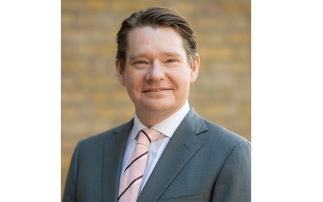James Waterworth, UK & Ireland ETF Sales at Lyxor Asset Management
For Europe's ETF investors, the story of Emerging Markets has been largely a negative one since September 2014. Economic and geopolitical fears have weighed heavily on the region, and investors have been retreating for some time.
That is however until March this year when Emerging Market ETFs mounted their comeback with a record €1.3bn in new assets on the equity side, and €850m on the debt side. The story so far has been one of broad market exposure with €1bn in new assets, while regional ETFs like EM Asia, Latin America and Eastern Europe attracted €239M.* However, as we will see later, there is a lot to be said for exploring further into individual countries.

**Source: Lyxor International Asset Management. Data as at 01/04/16. What has changed?
What has changed?
The EM picture has improved from a top down and bottom up perspective. The US Federal Reserve has softened its stance on interest rates, commodity prices have somewhat stabilised, monetary policies are supportive, and ultimately EM assets are starting to look like good value after the heavy re-pricing of the past few years. The MSCI Emerging Markets index has been the big winner of the broad market trend. With approximately 830 stocks in the index, it provides a simple way to gain diverse exposure to 23 of the world's emerging market countries. However, like any market cap weighted index, it has its biases. From a geographic perspective you are largely buying China (19%), South Korea (15.39%) and Taiwan (12.32%), and for sectors you are predominantly buying Financials (27.4%) and Information Technology (20.7%).*
Choosing the right exposure
Considering the Emerging Markets as a whole can sometimes be misguided. Broadly they have indeed been a negative story recently. Had you invested in the MSCI Emerging Market index last year, you would have lost 17.7%. However, explore a little further and the story is not as bad. Against a backdrop of the Euro Stoxx 50 losing 16%, the FTSE 100 falling 5% and the S&P 500 down 4%, Mexico, Russia and Turkey fell a similar 6-7.5%. But year to date, Brazil (24.6%), Turkey (16.7%) and Africa (14.4%) have been Lyxor's top EM performers, proving that it can pay to venture from the well trodden path. The main drawback to the more granular, single country approach is the increased levels of volatility.
This is why research is the key to the successful navigation of the Emerging Markets. SG Cross Asset Research Analysts expect Eastern Europe to benefit from healthy growth, accommodative policies (both domestic and from the European Central Bank) and from higher oil prices for Russia. Political developments in Brazil should be positive, and in Asia, Indonesian equity markets should benefit from monetary policy easing and political reforms.
Structure matters
Tracking an emerging market country or region is not as straight forward as tracking a highly liquid index like the FTSE 100 Index. Some emerging market stocks for example may not be available to foreign investment. Or, even if you can access the underlying securities, different time zones and limited liquidity can create issues when you come to trading in or out of those securities. This can be problematic for physical ETFs, which rely on buying some or all of the stocks of the index in order to provide the performance of the ETF.
For these reasons, Lyxor opts for synthetic replication for complex exposures such as Emerging Markets. We believe this approach ensures tighter tracking efficiency compared to physical replication, and hence better performance for investors. The associated counterparty risk is mitigated by the fact that the fund still holds physical securities that meet strict UCITS guidelines for liquidity, quality and diversification.
Accessing Emerging Markets using ETFs
Lyxor currently manages over €5.2bn in Emerging Markets ETF assets. One of our greatest strengths is our ability to deliver secure, liquid and precise tracking in even the most remote investment markets. Lyxor is Europe's largest provider for single country Emerging Markets with 18 different available exposures. We have the largest ETFs in Europe on India, China, Russia, Brazil, Eastern Europe, South Africa and Malaysia, and the only ETFs on Pan Africa and Kuwait.* We have the most efficient ETF on the MSCI Emerging Market Index in 2015 and over 3 years.*** We also offer a range of regional wide exposures such as Latin America and Eastern Europe, EM debt funds, and a minimum volatility ETF for EM investors seeking to reduce portfolio risk.
If you have any enquiries for Lyxor, please contact James Waterworth, UK & Ireland ETF Sales, Lyxor Asset Management at [email protected] or visit www.lyxoretf.co.uk
*Source: Lyxor International Asset Management. Data as at 01/04/16.
***Ranking in terms of Efficiency Indicator, as at December 31st, 2015. Past performance is not a reliable indicator of future performance. Peer group methodology: for a given index, the peer group is composed of the relevant Lyxor ETFs and the 4 largest ETF share classes in AUM from competing ETFs with market share above 5% during the time period under consideration.The rationale and construction of this efficiency indicator are detailed in an academic paper published by Thierry Roncalli, Head of Research & Development at Lyxor and Professor of Finance at the Evry University, and Marlene Hassine, ETF strategist. The academic paper can be downloaded from SSRN: http://ssrn.com/abstract=2212596 or from REPEC http://ideas.repec.org/p/pra/mprapa/44298.html
THIS COMMUNICATION IS FOR ELIGIBLE COUNTERPARTIES OR PROFESSIONAL CLIENTS ONLY
This document is for the exclusive use of investors acting on their own account and categorized either as "Eligible Counterparties" or "Professional Clients" within the meaning of Markets in Financial Instruments Directive 2004/39/EC. These products comply with the UCITS Directive (2009/65/EC). Lyxor International Asset Management (LIAM) recommends that investors read carefully the "investment risks" section of the product's documentation (prospectus and KIID). The prospectus and KIID are available free of charge on www.lyxoretf.com, and upon request to [email protected]. Lyxor International Asset Management (LIAM), société par actions simplifiée having its registered office at Tours Société Générale, 17 cours Valmy, 92800 Puteaux (France),











